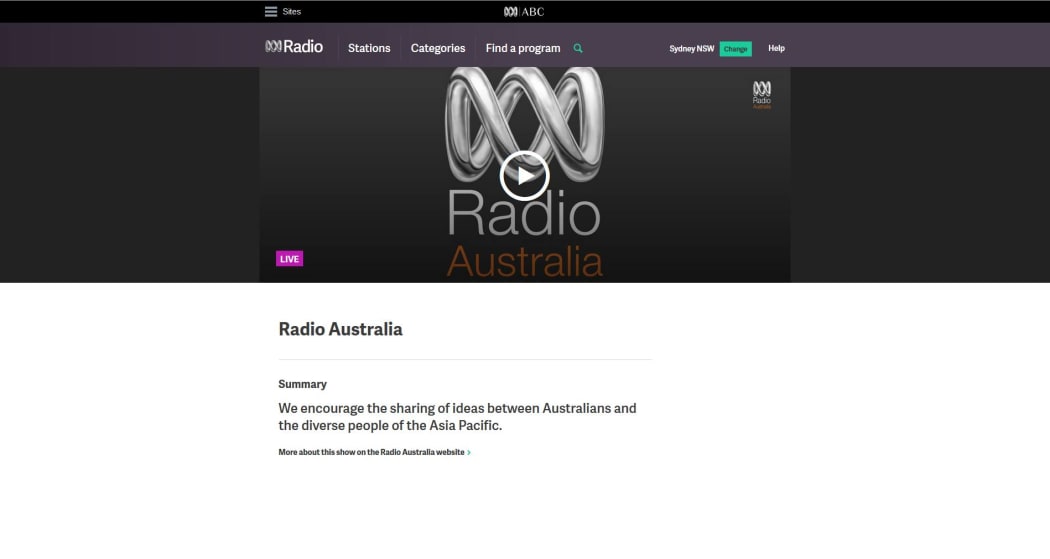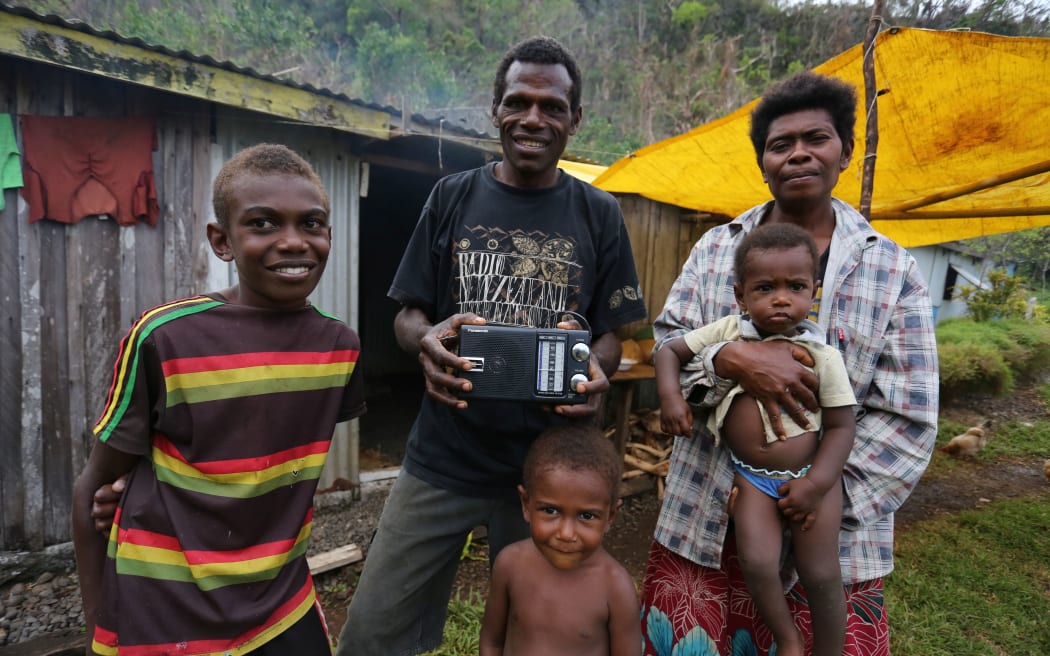The Australian Broadcasting Corporation ended its shortwave service to the region today saying it's not viable and too expensive to maintain.
The chop has been greeted with dismay in many parts of the region, particularly in remote parts of Melanesia.
Papua New Guinea MP Ron Knight said it was a sad day for the 90 percent of his people in remote areas of Manus province who cannot get local FM radio.
"That's the only meaningful, one of the most meaningful things I should say, that the Australian government does give to the Pacific islands people."
"For it to close down will deprive a lot of people of current affairs and the news and the situation as day to day events unfold in and around the world and the Pacific region."
Mr Knight said remote villagers would probably only get their news now when they come into Lorengau town where they can buy a newspaper and pick up FM radio.
The ABC has promised to expand its digital services and FM but Mr Knight said that would not be much use unless satellite equipment was provided and internet coverage expanded.

Radio Australia ended its broadcast to the Pacific on January 31 at 1200AEST Photo: RNZI/ Radio Australia homepage
A human rights activist with the PNG Tribal Federation Ruth Kissam said the service's news and current affairs programmes in local languages had helped make her job fighting sorcery-related violence easier.
"What the ABC does is that it gets more in depth stories and sometimes it gets stories out to the people in the way that it helps them not only to see what's going on but at the same time for them to take action.
"I've seen that with the ABC especially getting messages out there with sorcery-related violence which is really helpful."
Transparency International Solomon Islands' Ruth Liloqula said thousands tuned in to ABC news programmes in the remotest parts of the country because the signal was stronger than that of the country's public broadcaster SIBC.
She said her relatives in Choiseul province were only aware of tsunami risk after the recent earthquake through the ABC.
Ms Liloqula said not only had the service been a lifeline for many during cyclones and earthquakes, its current affairs programmes probed deeper than the local media sometimes felt able to.
"We are very very mindful of the fact that the SIBC media here is owned by the government. I mean they don't ask the questions that they need to ask for obvious reasons. I mean we do get asked those tough questions by ABC and that gives us the opportunity to talk about the issues that affect this country."
A freelance journalist in Solomon Islands Dorothy Wickham said the ABC and RNZ International, which continues to broadcast its shortwave service to the region, played a vital role during the country's ethnic crisis especially when local media felt threatened.
"There was a lot of harrassment against local media here for telling certain stories that militants didn't want going out, even sometimes government.
"Freelancers like myself were able to get the stories and file it to Radio New Zealand or to ABC, and it gets relayed back into the country. You know, the independence of the media is jeopardised and you have ABC and Radio New Zealand to fall back on."

Chief Ben Lovo and his family of Bongkil Village on Erromango, Vanuatu. He says shortwave broadcasts from RNZI during Cyclone Pam allowed him to warn four villages and save hundreds of lives Photo: RNZI/Koroi Hawkins
Many said the ABC's power as a cultural tool and lifeline had been under-estimated.
"It's generally one person in the village that owns the radio and probably that's the chief. There's a communal listening station and the radio will be turned on at a certain time of the day and everyone will gather to listen to it and that's often news time," said Garry Cratt of Tecsun Radios Australia who sold 500 solar powered shortwave radios to Solomon Islands last year.
The ABC, which has also cut its shortwave services to Australia's Northern Territory, said the move was in line with its commitment to dispense with outdated technology and to expand its digital content offerings including DAB+ digital radio, online and mobile services, together with FM services.
The South Australian senator, Nick Xenophon, said ABC's shortwave was an essential service and he was planning to introduce legislation into parliament to force the broadcaster to bring it back.


